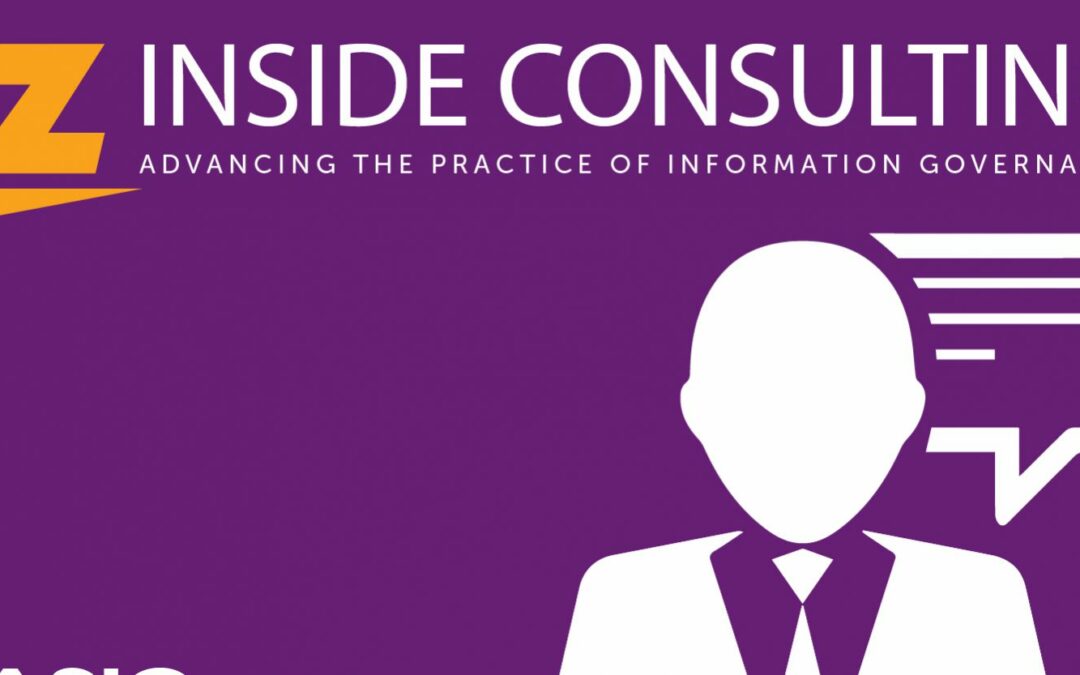We’re excited to highlight some of the recent engagements of our Consulting Division and the ways we’re using our expertise, resources, and thought-leadership to serve our clients and communities as we advance the practice of records management and information governance.
Retention Schedule Maintenance
Our experience and reputation in drafting and updating retention schedules continues to earn the trust of our clients. This is reflected by our numerous ongoing maintenance relationships, many of which extend back more than a decade. Recently, we completed a refresh of retention schedules for clients in multiple industries, including oil and gas, manufacturing, pharmaceuticals, and financial services. This work encompassed legal research in the United States, Canada, the European Union, China, India, and many others, totaling over 30 unique international jurisdictions.
During our refresh efforts, we validated legacy retention citations to ensure they remain current and legally valid, conducted research to discover relevant newly-enacted laws, and provided recommendations to adjust retention periods to meet minimum legal standards while improving efficiency and ease of use.
Retention Schedule Development
Retention schedules are the linchpin of a sound and legally defensible records management program. Each retention schedule must be designed to provide robust coverage of business operations while keeping simplicity in mind. This serves two purposes: to encourage adoption and to foster a culture of adherence within the organization.
During a recent client restructuring effort, we conducted interviews with key stakeholders to identify records and merge multiple retention schedules into one functional and process-oriented retention schedule. This helped make implementation of the schedule across departments easier. When we wrapped up the project, the restructuring effort resulted in a more efficient retention schedule that reduced the number of record codes from nearly 100 down to 45, a reduction of over 50%.
In addition, we assisted a company specializing in the emerging field of Internet of Things (IoT) with the initial phase in the development of its company-wide retention schedule. Although regulation of the IoT industry is still in its early stages, we provided a flexible records retention schedule that will enable them to adapt to a dynamic regulatory environment in the future.
Global Harmonization
A unified records retention schedule eases the administrative burdens for large multinational companies that conduct operations in numerous international jurisdictions. A global financial institution sought our guidance on the consolidation of multiple jurisdictional schedules into a single, harmonized schedule, as well as help to identify potential hurdles. This required analysis of the shortest compliant retention period for each country where they operate. We then synthesized this information into recommendations to integrate and harmonize the client’s retention periods between all their jurisdictions with an eye to lower global retention periods while keeping the number of country-specific exceptions to a minimum. This was to help prepare the client for the roll-out of their international consolidation efforts.
Mergers and Acquisitions
The merger of two or more separate companies or business units can present a daunting task for records managers. Seeking to unify the two disparate systems often creates significant pain points concerning compatibility, file structure, and naming conventions. An international credit agency recently sought our advice on building a retention schedule to cover all its existing operations and business divisions, including those recently acquired. We interviewed stakeholders at various business units within the company and merged the diverse records into a single, unified records retention schedule, using domestic and international research to validate and streamline their retention schedule.
Expert Guidance
Records managers continually face new challenges presented by new information technologies, formats, and platforms. We have been a thought leader in the information governance space for over a decade. A client recently asked for our assistance to design a policy to manage unstructured data. We created a report that contained best-practice guidelines and considerations necessary for the planning and development of an unstructured data management policy. The report included guidance and sample policies, as well as specific unstructured data policy considerations tailored to email and electronic messages, shared drives, and SharePoint. This gave the client a foundation on which to build their program and policies.
Contact Zasio today to see how our host of software solutions and consulting services can help you stay complaint with your data retention policies and practices.

